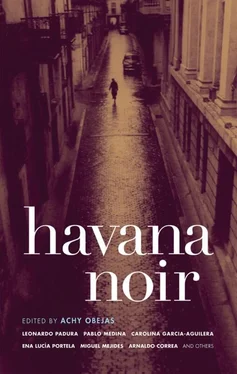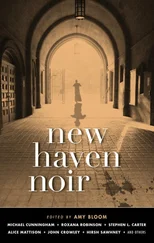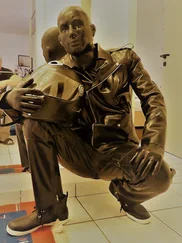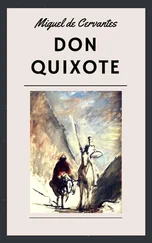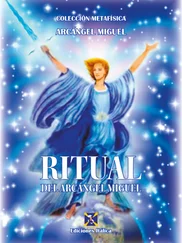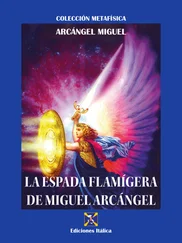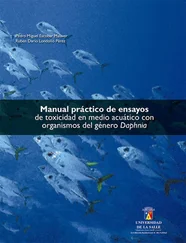Miguel Mejides - Havana Noir
Здесь есть возможность читать онлайн «Miguel Mejides - Havana Noir» весь текст электронной книги совершенно бесплатно (целиком полную версию без сокращений). В некоторых случаях можно слушать аудио, скачать через торрент в формате fb2 и присутствует краткое содержание. Город: New York, Год выпуска: 2007, ISBN: 2007, Издательство: Akashic Books, Жанр: Детектив, на английском языке. Описание произведения, (предисловие) а так же отзывы посетителей доступны на портале библиотеки ЛибКат.
- Название:Havana Noir
- Автор:
- Издательство:Akashic Books
- Жанр:
- Год:2007
- Город:New York
- ISBN:978-1-933354-38-5
- Рейтинг книги:4 / 5. Голосов: 1
-
Избранное:Добавить в избранное
- Отзывы:
-
Ваша оценка:
- 80
- 1
- 2
- 3
- 4
- 5
Havana Noir: краткое содержание, описание и аннотация
Предлагаем к чтению аннотацию, описание, краткое содержание или предисловие (зависит от того, что написал сам автор книги «Havana Noir»). Если вы не нашли необходимую информацию о книге — напишите в комментариях, мы постараемся отыскать её.
, authors uncover crimes of violence and loveless sex, of mental cruelty and greed, of self-preservation and collective hysteria, in a city characterized by ironic and wrenching contradictions.
Havana Noir — читать онлайн бесплатно полную книгу (весь текст) целиком
Ниже представлен текст книги, разбитый по страницам. Система сохранения места последней прочитанной страницы, позволяет с удобством читать онлайн бесплатно книгу «Havana Noir», без необходимости каждый раз заново искать на чём Вы остановились. Поставьте закладку, и сможете в любой момент перейти на страницу, на которой закончили чтение.
Интервал:
Закладка:
As the Rodríguez-López family had not been blessed with children, the couple was on their own, except for Eladio’s assistance. Eladio had never married — he had gone to work for the family as a young man, rising from junior assistant in the kitchen to chief butler, his position when Castro came into power — and so he too had no children, at least none that he was aware of. Like his employers, he was on his own.
Of course, all three had numerous friends and relatives, but most had long ago left and gone into exile in different countries. Visitors to the house were few. The only ones who still came around were Luis’s three oldest friends: Roberto Cruz, Ricardo Mendoza, and Eduardo Menocal, all of whom, for various reasons, had chosen to remain in Havana.
In pre-Castro Cuba, members of certain upper-class families had been friends for generations, and their offspring were expected to continue the tradition, even if they loathed each other. The difference in the case of Luis, Roberto, Ricardo, and Eduardo was that they genuinely liked each other.
From kindergarten through high school, they had been classmates at Belén, a Catholic school for boys in Havana — ironically, the same one Castro had attended. And because they had been outstanding students, they’d gone on to Ivy League universities in the United States: Luis and Eduardo to Harvard, Roberto to Yale, and Ricardo to Princeton. Since the colleges were all located in the northeast, relatively near New York City, it hadn’t been difficult for them to get together frequently. They were as close as brothers, and had been ushers at each other’s weddings and, on occasion, gone into business together.
They would often discuss their friendship while lounging on one of their boats, after having tossed aside their on-land seriousness and consumed many beers. They had decided somewhere along the way that the strong bond they enjoyed could be attributed to their mutual love of the ocean. As Cuba was surrounded by the beautiful waters of the Caribbean, it was not surprising that children — those of the upper class, at any rate — learned how to swim almost as soon as they began to walk. The four friends dabbled in almost every sport that related to the ocean, but their two favorites were fishing and crew.
This choice was no surprise to anyone who knew them, since they each had a strong competitive streak. The four of them rowed so well as a team that when they trained and entered competitions — even as schoolboys they crewed against grown men — they invariably won. The more they won, the more they enjoyed rowing. They tried to stay in the best shape possible, training after school and on weekends.
For practical reasons, they couldn’t keep up that schedule — though they wanted to — during the four years they were away at college, but they still fit in rowing during vacations. Being overly serious — apart from their water adventures — none of the four had much of a social life, so they used that free time to dedicate themselves as much as possible to the sport.
For members of the Havana Rowing Club, their sports club, there was no higher achievement than the coveted gold medal given to the team that won the regatta which, in the Olympic spirit, was held every four years. The friends knew that if they were to win the medal, they would be looked at differently: Instead of bookworms, they would be recognized as athletes, as jocks. Because they were as ambitious as they were talented, the friends set their sights on winning the race, which would be in August 1950.
It took a lot of early morning hours of rowing practice, but not only did they win the medal, they did it in a shell — a boat — they had built themselves. In the years prior to the race, they’d endured the comments of others who made fun of them and their boat. But confident that one day they would prove their detractors wrong, they persevered — and they were vindicated one cloudless morning when, at the age of twentythree, they were awarded the medal.
They won not only because they were superb athletes but because they had faith in each other, and in their boat. That day, in the summer of 1950, when they came in first, was, and remained, the most important day of their long lives. They would never admit it to anyone else, but having won that race meant more to them than anything else — wives, children, family, professional successes. It had been a perfect day in an increasingly imperfect world.
Whenever they’d gotten together in the forty-two years since the race, Ricardo, Roberto, Eduardo, and Luis would relive that one glorious morning when they had defled all odds and set out in La Milagrosa — the boat they had lovingly, patiently, and reverently built with their own hands — and passed the finish line far ahead of those who’d laughed. That day, they had celebrated their victory by throwing a huge party at the Rodríguez-López house, feasting on seafood heaped on enormous platters: lobster, shrimp, Moro crabs — all of which they had caught themselves the day before. For, in addition to being outstanding rowers, the friends were exceptional fishermen.
Through the years, as often as time permitted, they would meet — early on weekend mornings, just as dawn was breaking — at the marina where their boats were docked, and jump onto whichever vessel was next in their rotation, and motor out to different diving spots. They would drop anchor and jump off the boat, emerging only when they were holding a lobster, or a crab, or a net full of shrimp.
Sometimes they wouldn’t wait to get back to land to eat their catch — usually the hapless lobsters were first choice. They would break out the bottles of rum, and then, properly lubricated, they would drop the live creatures into a big pot of boiling water they had prepared earlier. After eating the fresh lobster meat out on the rolling sea, they would return to Havana by 11 o’clock in the morning — happy, laughing, sunburned, and slightly drunk.
The race, with the celebratory meal that had followed it, was the one memory that had allowed them to survive all that they’d had to for the past half-century. The friends considered that day to be such an important milestone in their lives that each year for the forty-two years since they’d commemorated the occasion — come hell or high water — by getting together and eating the same exact meal: lobster, shrimp, and crabs. Afterwards, they would take out the album in which they’d chronicled their adventures, and look again and again at the photographs.
As time passed, and life in Cuba became ever so much more difficult, those once-a-year gatherings became the centerpiece of their lives. Their importance could never be overstated — in the hardest times, it gave them each a reason for living.
The items chosen for the menu now were the same they had always fished for in pre-Castro Cuba. That had been a happy time, a carefree time, a time of plenty, when the waters around their beloved island had not been overfished to produce a bounty — denied to its citizens — reserved for tourists. Eating the seafood was a luxury that transported them back to that time when they’d actually looked forward to a future. Castro may have taken everything else away from them, but he could not take away the memory of that glorious day.
At their yearly dinner, the old friends would take out their identical sets of photos — which Luis’s mother had given them — and examine each one, discussing the circumstances under which it had been taken, recalling every detail as clear as if it had just happened. Years ago they would disagree about some of the details, but they had long since arrived at a composite memory that satisfied them well. Instead of being four old men sitting in the dark in a decayed house crumbling around them, their too-loose clothing hanging on their skinny frames, they were the triumphant young men in the pictures, holding a trophy high over their heads, their boat clearly visible in the background.
Читать дальшеИнтервал:
Закладка:
Похожие книги на «Havana Noir»
Представляем Вашему вниманию похожие книги на «Havana Noir» списком для выбора. Мы отобрали схожую по названию и смыслу литературу в надежде предоставить читателям больше вариантов отыскать новые, интересные, ещё непрочитанные произведения.
Обсуждение, отзывы о книге «Havana Noir» и просто собственные мнения читателей. Оставьте ваши комментарии, напишите, что Вы думаете о произведении, его смысле или главных героях. Укажите что конкретно понравилось, а что нет, и почему Вы так считаете.
